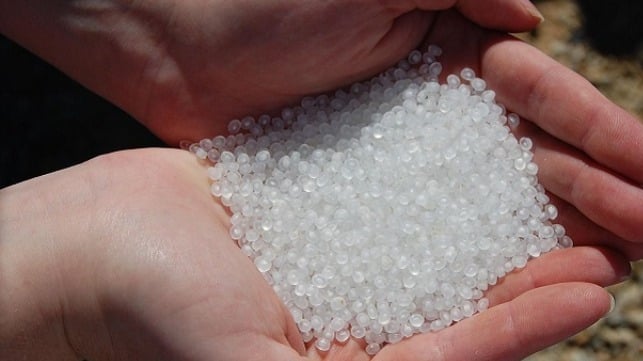Glamorous Beach in Dubai Fouled by Plastic Pellets

Spilled plastic nurdles are unsightly, tough to remove and likely harmful to marine life, and they have washed ashore in quantity at multiple locations in recent years, from Sri Lanka to France. The latest site: the glamorous beaches of Dubai, where volunteers are helping to clean up what they estimate to be 1,000 tonnes of tiny white beads. Luckily, most were still in bulk bags, so the spill was more easily contained.
"Apparently, the bags of pellets fell from a container at sea. And one bag has about 25 kilos to a tonne of these tiny balls, so you can imagine how much of it was on the beach," said surf club leader and cleanup organizer Candy Fanucci, speaking to The National.
Bags of #plastic found in Sunset Beach #Dubai #jumeirah
— Lovin Dubai | ???? ??? (@lovindubai) February 19, 2023
Clean-up is happening right now...all help is welcome! #lovindubai #plasticpollution
via @/gblaksley on Instagram pic.twitter.com/uMcltBSiHb
This is not the first instance of a large-scale nurdle release. In 2021, the fire and sinking of the container ship X-Press Pearl let loose about 1,680 tonnes of partially-burned nurdles, making it the largest marine plastic spill on record. The wreck was raised last month, nearly two years after the sinking, and the Sri Lankan government has decided to wait for the removal to be completed before putting a final dollar value on environmental damages. The claim is expected to be in the billions.
Nurdles can be harmful to marine organisms. They are often mistaken for food by fish and seabirds, and they slowly release manufacturing additive chemicals like plastic softeners and stablizers, some of which are carcinogenic. In addition to releasing their own contents, they are good at absorbing and transporting other toxins found in the marine environment, like heavy metals and manmade chemicals.
Despite these concerns, plastic nurdles are not regulated as a serious pollutant. That may change: the IMO Pollution Prevention Response subcommittee (PPR) will take up the matter in April 2023, with an eye towards making a recommendation to MEPC 80 in July. According to advocacy organization Fauna and Flora, this could result in a decision on binding rules on plastic pollution as early as MEPC 81, scheduled for next year.
"The impacts of plastic pellet pollution on our oceans and wildlife are becoming increasingly clear. How many more of these mass pollution events – largely being cleaned up by the public – need to occur before action is taken? The more IMO decision makers delay on classification and regulations, the worse the issue becomes," said Falco Martin, Program Officer for Marine Plastics at Fauna & Flora. "If IMO members were to vote to legally classify pellets as marine pollutants, this would immediately trigger significant improvements in the way
that pellets are packaged, labeled, stowed and transported around the world."
